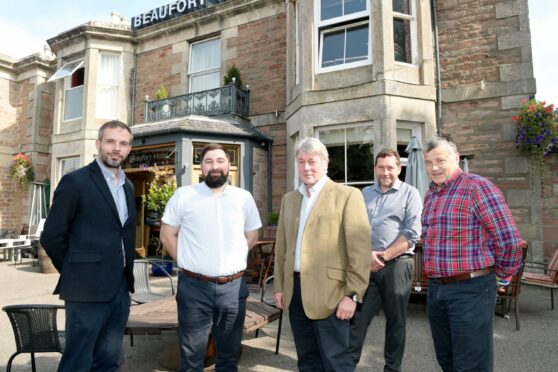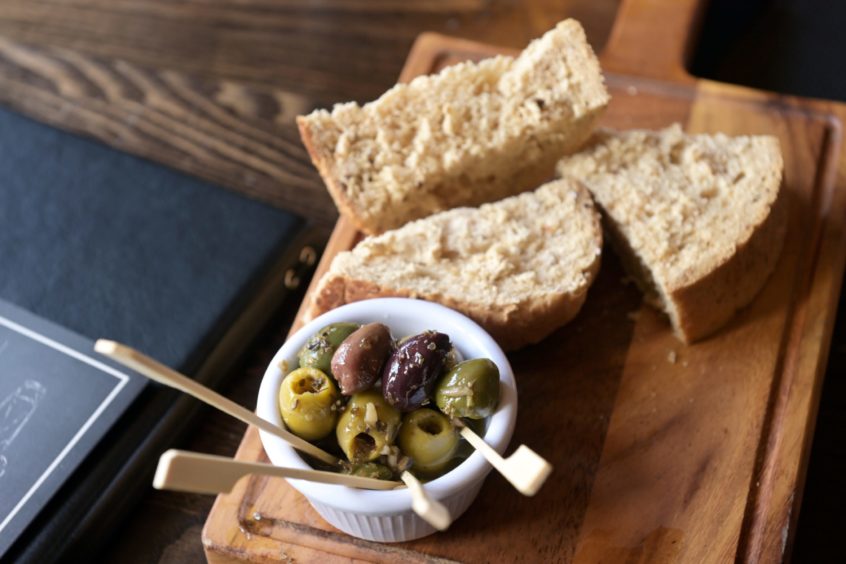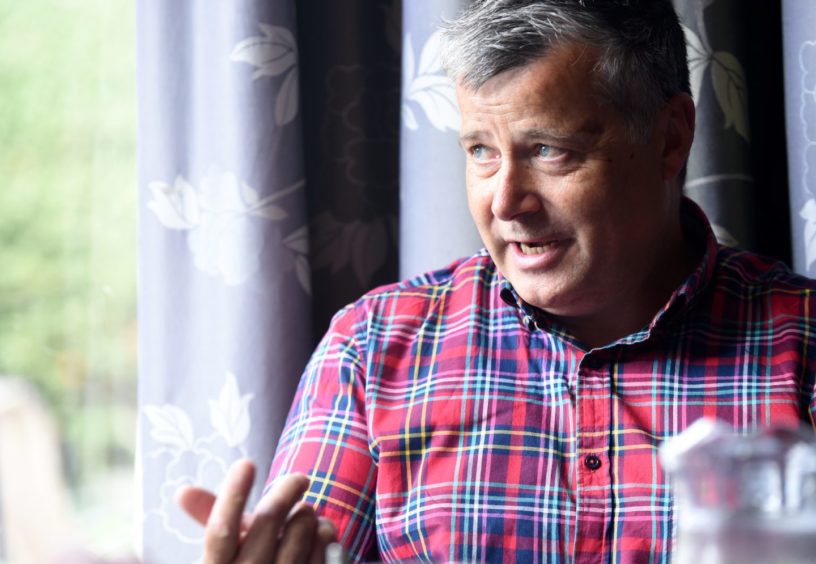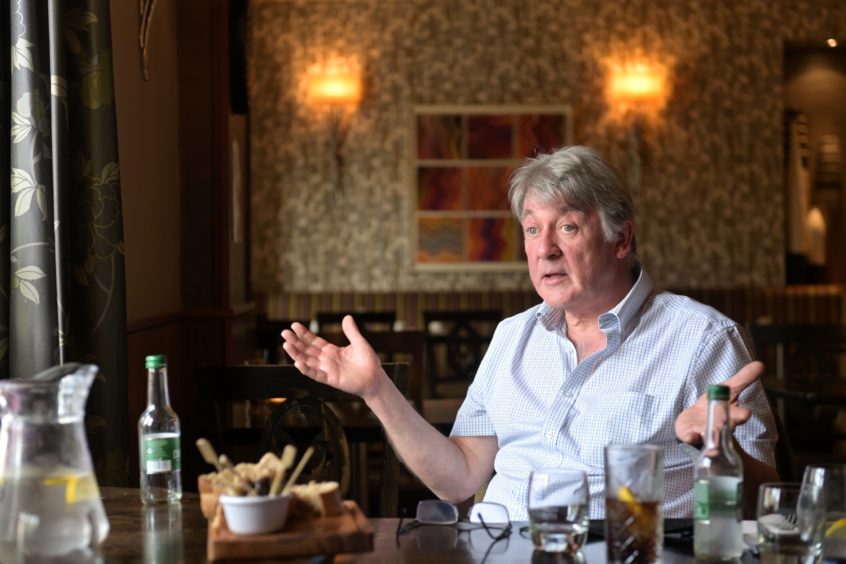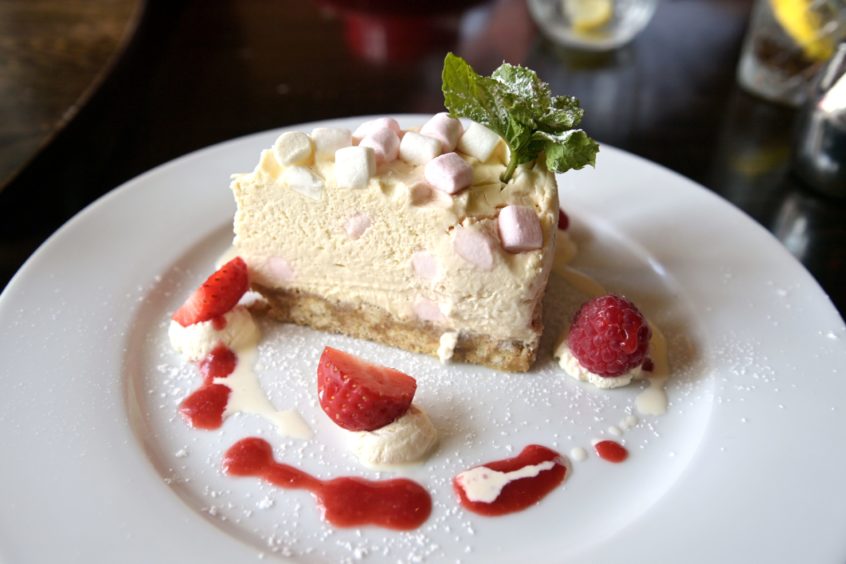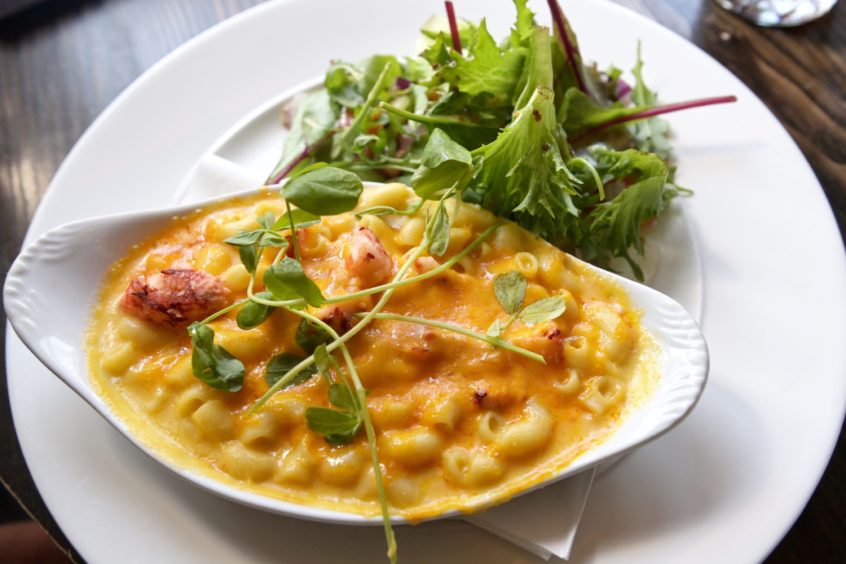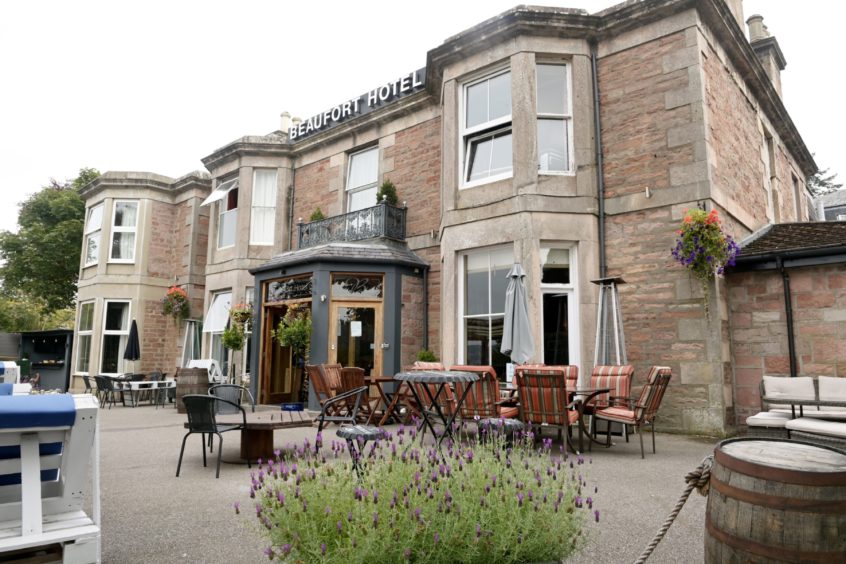The drinks industry is in “good fettle,” despite the extraordinary challenges of the past year-and-a-half and the raft of new ones it is now facing.
That was the, perhaps surprising, conclusion of craft beer producer and bar owner Norman Sinclair, as a fascinating and enjoyable lunchtime get together of a group of figures with an interest in the sector in the north drew to a close.
Joining me and Mr Sinclair in the restaurant at the Beaufort Hotel, in Inverness, were Badachro Distillery business development manager, Mike Fraser, Ryan Forbes from the hotel, and John Murray, founding director of the Highland Food and Drink Club.
After 18 months of convening such gatherings for The Lunch online, it was a pleasure to be able to meet in person, with the murmur of other diners’ conversation and the clink of cutlery and crockery in the background, rather than trying to replicate the experience on a laptop screen.
It was a couple of hours that rushed by, filled with tales of adaptation and innovation in rapidly changing circumstances, online success and the challenges of trying to plan ahead amid seemingly unending uncertainty.
With lockdown closures hitting pubs, restaurants and hotels from March last year and a long, bumpy road to full re-opening following in their wake, the drinks and hospitality sectors have not had their sorrows to seek.
And now, in what nobody seems to still refer to as the “new normal,” they have found themselves facing fresh challenges including shortages of staff, ingredients and materials, rising prices, and a lack of lorry drivers to carry goods around the country.
And there was a stark warning from Mr Murray, echoed by fellow guests, that we should all start getting used to bigger bills for food and drink in the months ahead.
It has been a time of contrasting fortunes for producers and purveyors of food and drink, as my lunch companions explained.
As well as Orkney Brewery, near the famous Skara Brae prehistoric village on Orkney’s mainland, Mr Sinclair owns the Cawdor Tavern restaurant and bars, around 14 miles from Inverness.
When we met, he was preparing to shut up shop at the brewery’s award-winning visitor centre as the close of a highly successful summer season approached at the end of this month.
But he had also only recently completed the unhappy task of disposing of the contents of more than 1,000 casks of his beer, unwanted at the height of the Covid restrictions.
Mr Sinclair, who has kept on brewing throughout the pandemic, said: “We are heavily into cask beer and casks were one of the last things hoteliers and publicans wanted back in their bars because of the uncertainties and the short shelf-life of cask beers.
“So that was challenging and I had to dump over 1,000 casks. It’s not so much just losing it, it’s trying to get rid of the liquid that’s the problem.
“We work with settlement ponds at the brewery and, of course, everybody sends it back up north to get rid of – you can’t just tip it down the drains.”
But since restrictions eased, it has been a different story.
Mr Sinclair added: “When things started to re-open this year, we came out with cask beer and nobody else was doing it, so there was a complete shortage and it just took off.
“We are up to nine or 10 different brands in casks. We just can’t produce enough of it – it’s completely off the wall and the north of Scotland has been absolutely fantastic.
“Anything above Perth is good and places in the north are ordering probably three times what they were pre-pandemic. The central belt is still sluggish, though.”
Mr Murray added that the unlikely headache of too much custom had not been an uncommon complaint in the north.
“Joking aside, I think there are a lot of people that are too busy,” he said.
“There are supply chain issues of getting products and core raw materials. There’s a multitude of issues out there, including Brexit and the pandemic, and some of them are just struggling to produce any more.”
Like the brewery, Badachro Distillery, kept making spirit for its gins, whiskies, and vodkas throughout last year and also started producing hand sanitizer spray.
The small distillery, along with self-catering accommodation, in the beautiful setting of the Wester Ross hamlet, near Gairloch, was launched by Gordon and Vanessa Quinn four years ago.
Mr Fraser said that, while largely unaffected by the problems of supplying bars, the business had encountered an unexpected challenge as, freed from lockdown constraints, staycationers headed west in droves.
“We kind of got lucky in that we weren’t that big in the on-trade,” said Mr Fraser.
“We were more in the specialist stores and the off-trades – so we got quite lucky in that respect.
“Quite a large part of our business is the tourism market and that’s probably what challenged us immediately.
“Staycationers – wow! We were just inundated with people on a pilgrimage from Inverness to Badachro and we just weren’t ready for it.”
Having weathered the storm, life and work at the distillery is now returning to a more sedate normal as the business turns its attention to other issues, such as the rising price of cardboard and the new complexities of getting batches of its products to Europe
“We’ve had to adapt and look at new markets that are not affected by Brexit, like Canada,” Mr Fraser added.
In common with Mr Fraser and many others around the country, Mr Forbes quickly developed an expertise in putting up gazebos for the comfort of customers to enjoy a drink outdoors last summer.
But, after going through a dozen of them, he opted for a more robust covered set up, with furniture made from pallets, in front of the main entrance of the Beaufort Hotel, on Culduthel Road, in the heart of Inverness.
Mr Forbes said it had “helped massively” as the hotel, which ran a takeaway service during lockdown, looked to lure customers back.
He said: “After the first lockdown, when we could re-open we had gazebos and we started making some furniture out of pallets.
“We didn’t know how long it would go on for, so we didn’t want so spend too much. Things were so uncertain at that time.
“Straight away it was a success and it’s grown and grown. The social media side has really helped us.”
Another social media hit for Mr Forbes was “a doorstep deli” he launched at the start of lockdown, delivering seafood directly off boats, using the Shopify trading app. He has since sold the business on to the fishermen he worked with.
An investment in its online activities also paid dividends for the Orkney Brewery, with Mr Sinclair putting a large room in Cawdor Tavern to use, while the venue was closed, as storage space for supplies as sales rocketed.
Mr Sinclair said: “At any one time we are now doing a whole van-load for online in one day.
“We invested heavily in it and we’ve seen a 500-800% increase in online sales and we are also going to Shopify.”
After successfully battling through a bruising 18 months, my lunch guests were, understandably, slightly reluctant to offer many predictions for the drink and hospitality sectors for the year ahead.
“I think the drink industry is alright – it’s in good fettle,” said Mr Sinclair.
And Mr Murray predicted that, after a busy summer for many across the wider industry in the north, there would be “winners and losers, but a lot of winners,” in the months to come.
And he added: “At the end of the day, ultimately I think the prices of a plate of food and a drink is going to go up.
“I was looking at a place offering a seven-course tasting menu and they actually stipulated it’s going up 20% at the end of September.”
Fine food and an ideal setting for a lunchtime chat
The Beaufort Hotel’s “cocktail trees” have rapidly become a big draw for groups enjoying a night out in Inverness.
“There has been a big shift to cocktails and there’s a lot more people choosing them now,” said Ryan Forbes, who hosted and joined us for The Lunch.
But on my visit, a sampling of the wide, colourful range on offer in the bar and on the Beaufort’s covered terrace was something that had to be put on the “to do list” for another, off-duty time.
Situated in the heart of the Highland capital, the family-run hotel has enjoyed a good summer since pandemic restrictions started to ease, with strong bookings and busy trade in its bar and restaurant.
And it was an ideal, central venue for our lunchtime get together.
The Beaufort offers an a la carte menu and is known for its prime Scotch beef.
Opting to eat indoors, rather on the terrace overlooking Culduthel Road, it was a pleasure to linger over the choice of dishes on offer.
In the end, I went for the classic mac and cheese, with Moray Firth lobster – which proved not only delicious, but the ideal dish to consume while also jotting down notes.
My guests were equally impressed with their choices, including tempura king prawns, served with chilli jam and salad, and chicken stuffed with haggis, with a wine and mushroom sauce.
